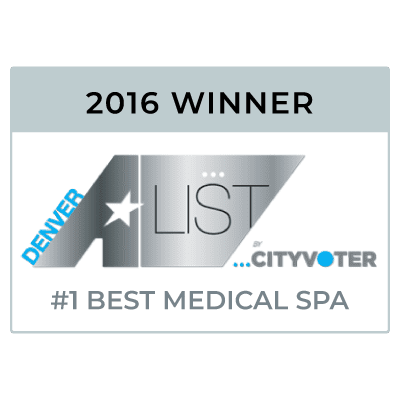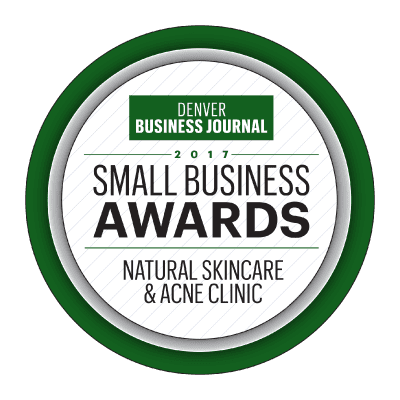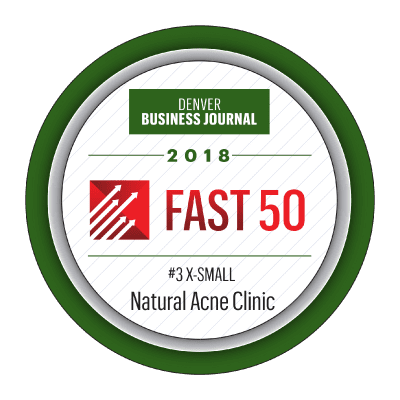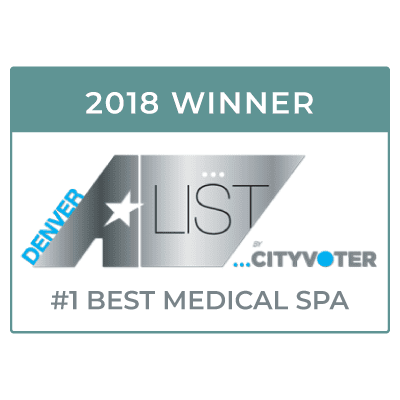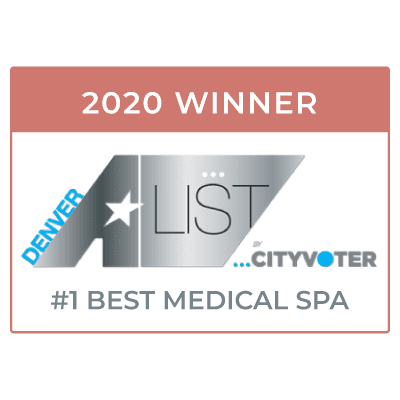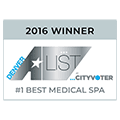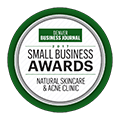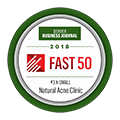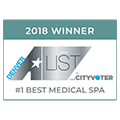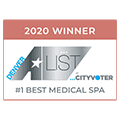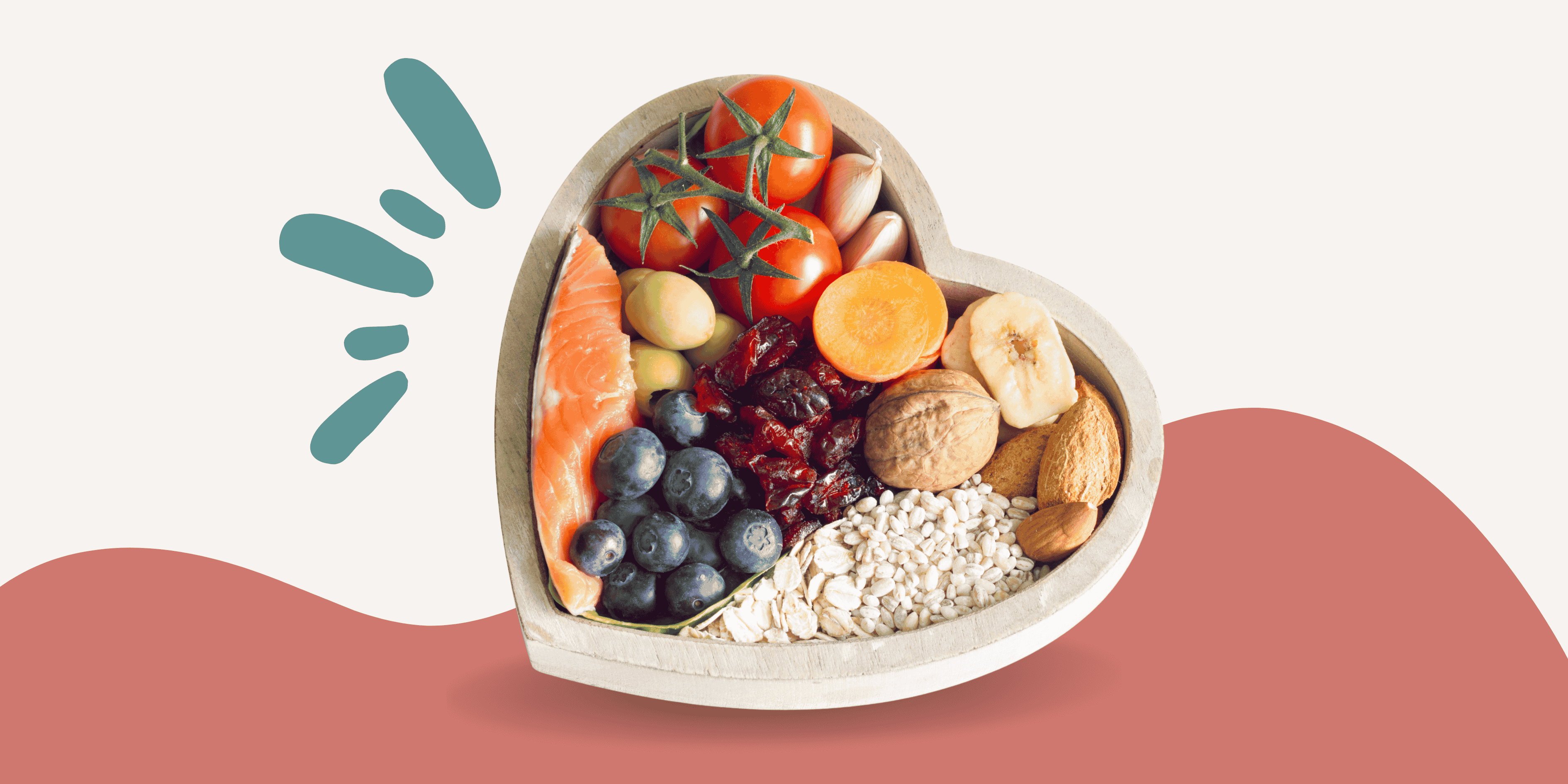
Why What You Eat Matters for Acne-Prone Skin
1. Anti-Inflammatory Foods for Acne-Prone Skin
Acne is an inflammatory condition at its core. Therefore, eating anti-inflammatory foods for acne-prone skin helps quiet redness and irritation (Harvard Health).
Omega-3 fatty acids are especially beneficial because they reduce inflammation and support skin barrier repair. Research shows low omega-3 levels are linked to higher acne severity, which is why adding more omega-3 foods for clear skin can make a noticeable difference.
Best options include:
- Chia seeds, flaxseeds, and walnuts
- Wild-caught salmon (limit to 1–2 servings per week due to iodine)
It can be challenging to obtain a therapeutic dose of omega-3s through diet alone, which is where our Clove Hill Skin Omega-3 supplement can make a significant difference. It delivers a concentrated, skin-specific dose to help balance oil production, soothe inflammation, and support a stronger, healthier skin barrier from the inside out.
Antioxidant-rich produce like blueberries, spinach, and sweet potatoes also protects your skin from oxidative stress, which is one of the sneaky drivers behind acne inflammation.
Tip: Aim to eat colorful fruits and vegetables daily. Each color represents different antioxidants that protect and heal skin cells.
2. Add Zinc-Rich Foods That Heal and Protect
Zinc supports wound healing, controls oil production, and helps reduce the bacteria linked to acne. In fact, research shows that many people with acne are low in zinc and that supplementing or increasing intake through food can speed up recovery (Wiley Online Library). Adding more nutrient-rich foods for acne-free skin can make a real difference.
Easy ways to add zinc:
- Snack on pumpkin seeds or roasted chickpeas
- Add lentils or quinoa to salads
- Enjoy grass-fed beef or turkey once or twice per week
Small additions can lead to noticeable improvements in skin resilience and recovery.
3. Power Trio: Vitamin A, Zinc, and Selenium for Clearer Skin
When it comes to nutrient support for acne-prone skin, three standouts rise above the rest: vitamin A, zinc, and selenium. These nutrients work together to balance oil production, strengthen the skin barrier, and calm inflammation from within, making them key players in any acne diet or diet plan for acne-free skin (Vitamins to Heal Your Acne).
1. Vitamin A (found in carrots, sweet potatoes, and dark leafy greens) supports healthy cell turnover and helps prevent clogged pores, helping support the root causes of breakouts.
2. Zinc (from pumpkin seeds, lentils, and grass-fed beef) supports wound healing, regulates oil production, and helps control acne-causing bacteria. Many people with acne are slightly low in zinc, which can slow recovery.
3. Selenium (in Brazil nuts, eggs, and lentils) works alongside vitamin E to protect skin cells from inflammation and oxidative stress, helping your skin stay balanced and resilient.
Tip: These three nutrients act like your skin’s internal defense system, keeping inflammation down, pores clear, and healing on track.
Even with a nutrient-rich, acne-friendly diet, it can be challenging to get optimal levels of all three nutrients through food alone. That’s where targeted supplementation can help.
Clove Hill Skin Clarity provides a professional-grade blend of vitamin A, zinc, and selenium, formulated specifically to support clear, healthy skin from within. It’s a simple, effective way to fill nutritional gaps and boost your results when diet alone isn’t enough.
4. Add Gut-Healthy Foods for Clearer Skin
Your gut and skin are in constant conversation. When your gut microbiome is healthy, it helps manage inflammation and even affects how your body processes hormones and toxins.
Add these for gut support:
Fermented foods: sauerkraut, kimchi, or non-dairy yogurt
Prebiotic foods: garlic, onions, and asparagus
Fiber-rich plants: avocado, broccoli, flaxseed, and leafy greens
A nourished gut helps improve nutrient absorption, so those skin-healing vitamins and minerals actually reach your skin cells.
If you struggle to incorporate enough fermented foods into your daily diet, our Clove Hill Clear Skin Probiotic-10 offers a simple and effective way to restore a healthy gut balance. It contains 10 strains of beneficial bacteria clinically shown to support digestion, immune health, and clear skin from within.

5. Support Your Liver: Your Skin’s Detox Partner
Your liver filters out excess hormones and toxins that can contribute to breakouts. Certain nutrients and foods help it function efficiently:
- Cruciferous veggies like broccoli, kale, and Brussels sprouts help your liver process estrogen and toxins more effectively.
- Beets, carrots, and turmeric provide antioxidants and support detox enzymes.
- A simple glass of lemon water in the morning gives your liver a gentle boost.
Think of these foods as your skin’s internal cleanup crew, supporting your body’s natural detox pathways so your skin can focus on healing.
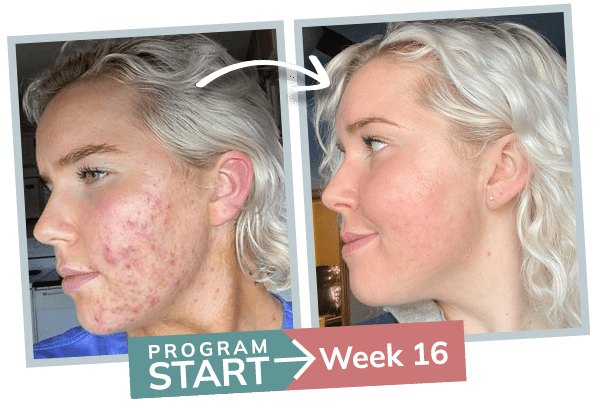
6. Be Mindful of Common Acne Triggers
While this post focuses on adding, it’s still important to be mindful of foods that can trigger inflammation or hormonal imbalance in your acne diet:
- Processed oils (canola, soybean, vegetable oil)
- Excess iodine (seaweeds, iodized salt)
- Too much vitamin B12 or biotin (often in supplements and protein powders)
- Foods that can affect hormones (soy, peanut products)
Balance and awareness are the goal, not perfection!
7. A Sample Adult Acne Diet Plan
Here’s a balanced, anti-inflammatory diet plan for acne-free skin that focuses on adding rather than restricting:
Breakfast: Oatmeal with blueberries, chia seeds, and almond butter
Lunch: Quinoa salad with chickpeas, kale, roasted sweet potato, and olive oil
Snack: Pumpkin seeds and green tea
Dinner: Grilled chicken with steamed broccoli and brown rice
Each meal provides acne-friendly foods rich in zinc, antioxidants, fiber, and omega-3s, the best foods for acne-prone skin to support calm, clear skin naturally. Check out more healthy skin recipes in our Clear Skin from Within Cookbook.
8. When Diet Alone Isn’t Enough
Even with the best diet and acne plan, food is just one part of your clear-skin journey. Acne can also be influenced by hormone fluctuations, stress, gut imbalances, and pore-clogging ingredients in your skincare.
Think of food as your foundation; it nourishes your body and helps calm inflammation from within. But lasting results come from addressing what’s happening both inside and on the surface.
If you’re unsure where to start, we can help you identify your personal triggers and create a customized adult acne diet plan that fits your skin type, goals, and lifestyle.
Explore our Online Acne Program for holistic skin healing.
Final Thoughts
Eating for clear skin isn’t about perfection… It’s about consistency and awareness. By focusing on nutrient-rich foods for acne-free skin, you give your body the tools it needs to balance hormones, reduce inflammation, and repair.
Instead of asking, “What should I cut out?” ask, “What can I add today to support my skin?” Even small swaps add up to meaningful results.
Your skin is always communicating with you. Feed it the right foods, and it will start to respond from the inside out.
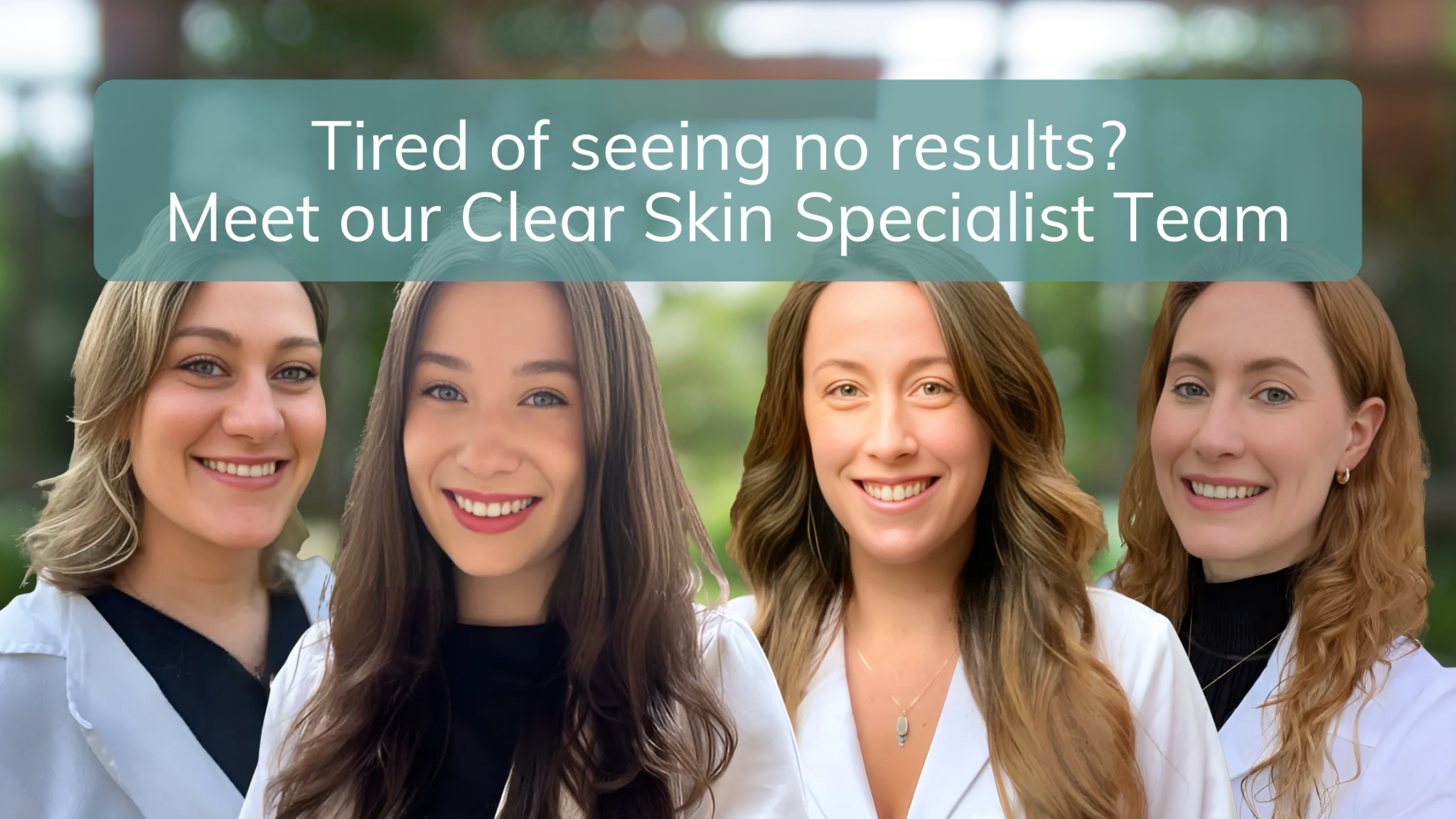
Ready to find out exactly what your skin needs?
Book a virtual Skin Analysis with a Clear Skin Specialist to get a personalized acne-safe plan that includes both nutrition and skincare guidance, because clear skin starts with understanding
